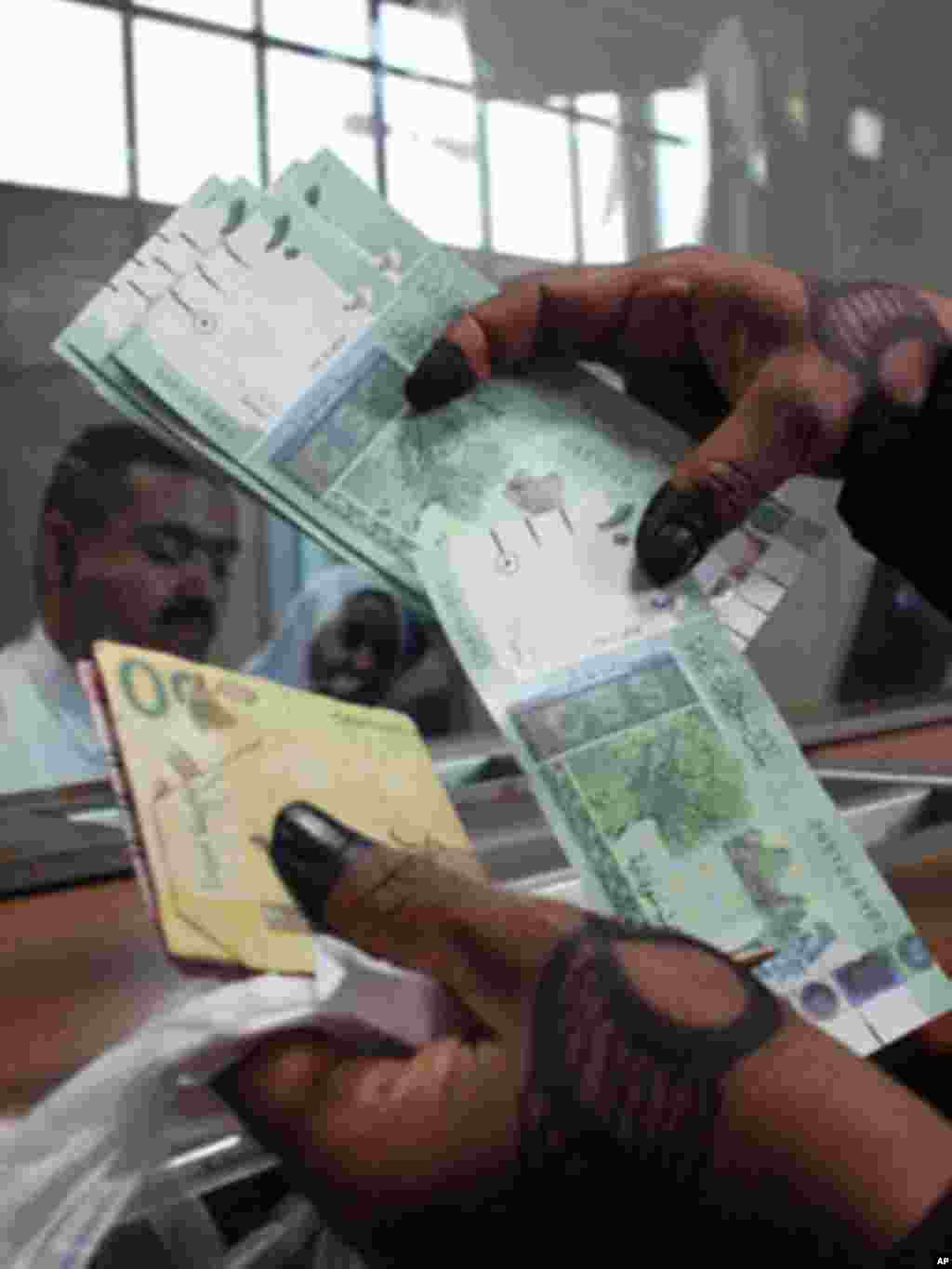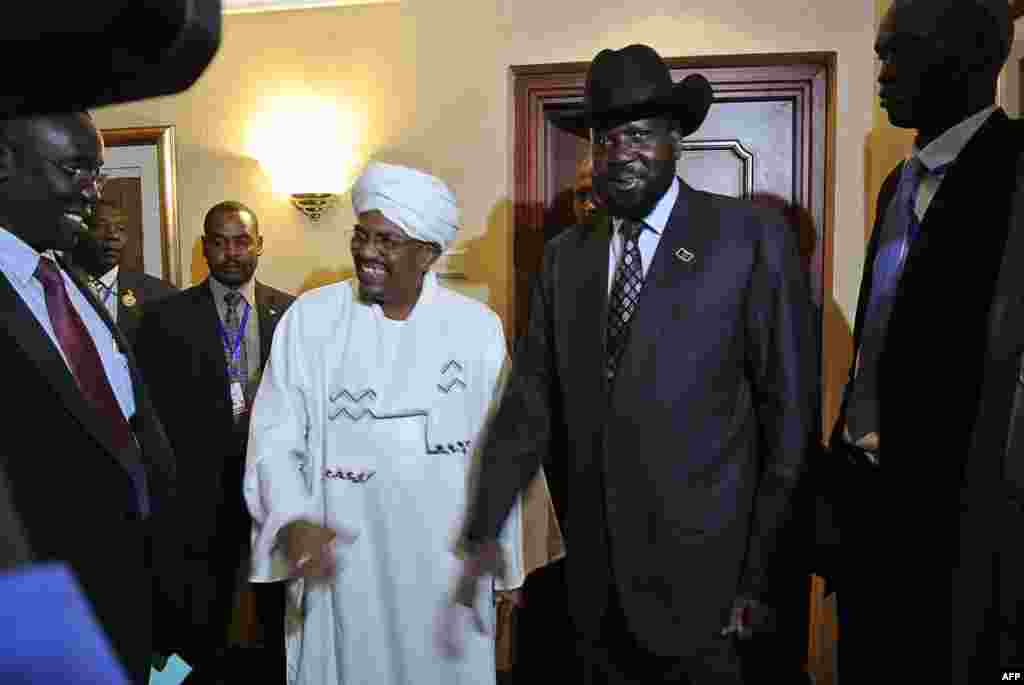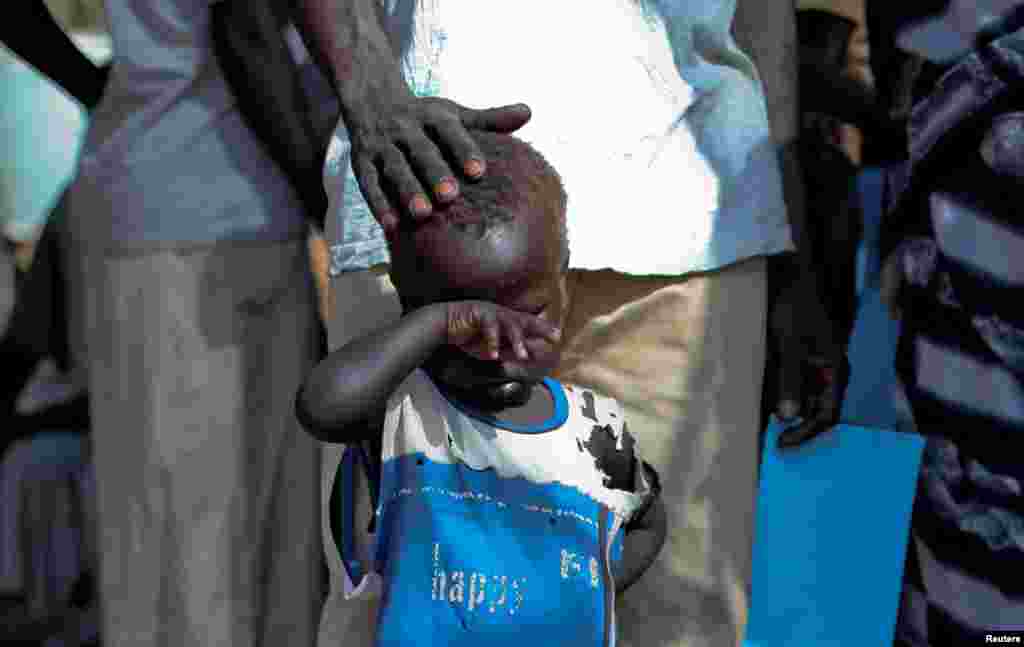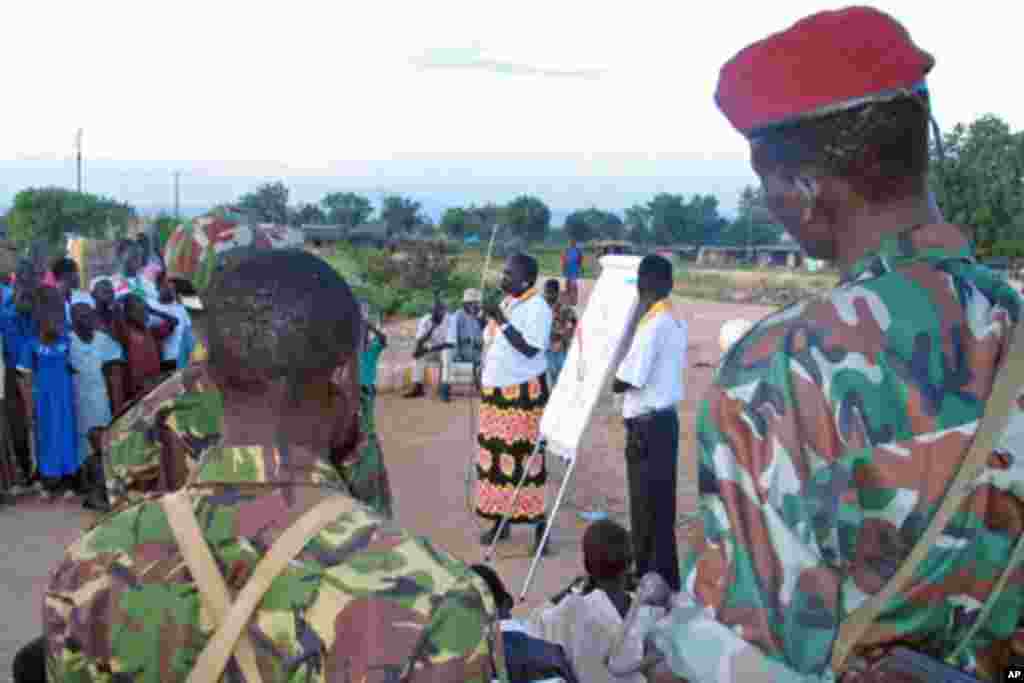South Sudan in Focus Listeners Speak Out

1
President Kiir should know the difference between cows and money. How come he kept money in his compound like cows and yet we have safe places like banks for him to save his save his money? Keeping money in the office is a sign of corruption. - James Ruei Majok in Unity state
A woman displays Sudan's new currency at the central bank in Khartoum, Sudan, in July 2011.
A woman displays Sudan's new currency at the central bank in Khartoum, Sudan, in July 2011.

2
I advise the African Union to ensure South Sudan and Sudan implement the cooperation agreements. The AU should deal with whomever obstructs the implementation of the agreements, regardless of whether they are from Sudan or South Sudan. - Angelo Akec Dengdit in Western Bahr al Ghazal state
Sudanese President Omar al-Bashir (Center L) smiles after shaking hands with his South Sudanese counterpart Salva Kiir (Center R) following a meeting in the Ethiopian capital Addis Ababa, July 14, 2012. The agreements lay moribund until earlier this month, when a timeline for implementing them was agreed to.
Sudanese President Omar al-Bashir (Center L) smiles after shaking hands with his South Sudanese counterpart Salva Kiir (Center R) following a meeting in the Ethiopian capital Addis Ababa, July 14, 2012. The agreements lay moribund until earlier this month, when a timeline for implementing them was agreed to.

3
Why are Arabs still attacking the civilian population in Northern Bahr el Ghazal state when there is supposed to be peace between South Sudan and Sudan? - James Ruei Majok in Hai Soura, Juba
March 9, 2012: A boy who fled a war across the border in Sudan's Blue Nile state waits outside a clinic in Doro refugee camp.
March 9, 2012: A boy who fled a war across the border in Sudan's Blue Nile state waits outside a clinic in Doro refugee camp.

5
The recent report about a decline in HIV/AIDs infection rates in South Sudan should not be interpreted to mean that the disease is coming to an end. Instead, we should take this as an opportunity to change our ways. - James Mabusu in Maridi, Western Equatoria state
A Sudanese aid worker talks to soldiers and scouts on how to spread the message on HIV/AIDS at an internally displaced camp in Juba, southern Sudan, October 2005. The HIV-infection rate in South Sudan fell slightly last year, a government report showed. (file photo)
A Sudanese aid worker talks to soldiers and scouts on how to spread the message on HIV/AIDS at an internally displaced camp in Juba, southern Sudan, October 2005. The HIV-infection rate in South Sudan fell slightly last year, a government report showed. (file photo)



